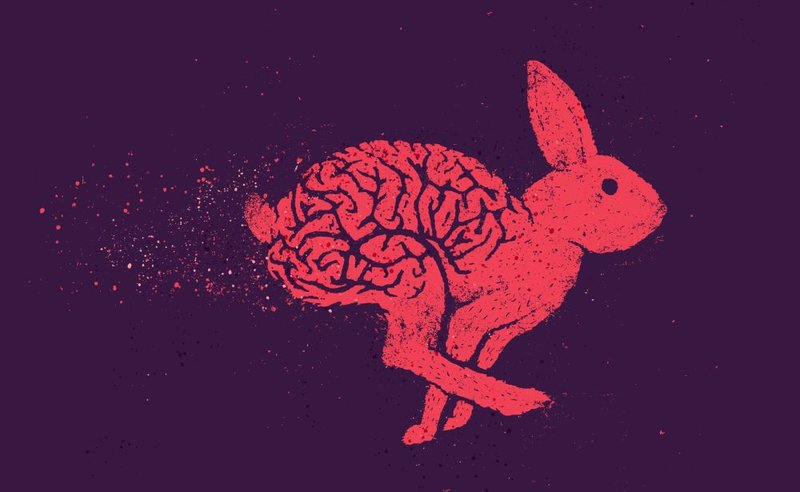Künstliche Intelligenz gewinnt immer mehr an Bedeutung. Neue KI-Technologien ermöglichen es uns, die Entwicklungszyklen von Medikamenten radikal zu verkürzen, das Erschaffen neuer Materialien zu beschleunigen und Migrationsströme vorherzusagen. Aber wie lernen Maschinen, und wie kann KI uns helfen, wissenschaftliche Entdeckungen und Innovationen voranzutreiben? Einer, der sich damit auskennt, ist Alessandro Curioni, Direktor des IBM Research Lab in Zürich und ein international anerkannter Experte auf dem Gebiet des Hochleistungsrechnens und der Computerwissenschaften.
Curioni ist Co-Host der Konferenz Discovery on Steroids: How AI Will Speed up Innovation, die am 5. Juli 2022 vom Gottlieb Duttweiler Institute, dem Swiss Re Institute und IBM Research organisiert wird. Im Vorfeld der Veranstaltung beantwortete er unsere Fragen.
GDI: Künstliche Intelligenz verspricht, Innovation zu revolutionieren und zu beschleunigen. Was bedeutet die KI-gestützte Innovation für die Gesellschaft und für Unternehmen?
Alessandro Curioni: Künstliche Intelligenz treibt seit Jahren Fortschritt und Innovation voran – und mit der laufenden Forschung wird sie immer ausgefeilter. Nehmen wir zum Beispiel die Entdeckung neuer Materialien. Das war schon immer ein extrem langwieriger und teurer Prozess, der viele Jahre und erhebliche Investitionen erforderte. Wir beginnen zu sehen, wie KI in jeden Schritt des Entdeckungsprozesses einfliesst – von der Aufnahme der riesigen Menge an vorhandenem Wissen über Materialien; über die Erstellung von Hypothesen über die vielversprechendsten neuen Materialkandidaten; bis hin zum Vorschlag und der Validierung praktikabler Synthetisierungswege. Und, was vielleicht am wichtigsten ist, die Integration und Automatisierung all dieser Schritte, um einen positiven Kreislauf der wissenschaftlichen Entdeckung zu erreichen.
Wann werden wir den Punkt erreichen, an dem Maschinen mehr Entscheidungen treffen als Menschen?
Es geht nicht darum, mehr Entscheidungen zu treffen, sondern darum, dass Maschinen an der Seite von Menschen arbeiten und unsere Bemühungen ergänzen und verstärken. Es gibt bestimmte Aufgaben, die automatisiert werden können und daher viel besser für eine Maschine geeignet sind, so dass der Mensch mehr Zeit für andere Beschäftigungen und Kreatives hat. Und es gibt Aufgaben, die eine Maschine effizienter erledigen kann. Letztlich geht es aber darum, unser Leben mit Hilfe der KI einfacher zu gestalten – nicht darum, eine KI zu schaffen, die den Menschen übertrifft.
Und wann werden wir von der «Narrow AI», die spezifische Aufgaben erfüllen kann, zur «Broad AI» übergehen, die mehrere Aufgaben und Bereiche abdecken kann – oder sogar zur «General AI», die zu komplexem Denken und vollständiger Autonomie fähig ist?
Daran arbeiten wir. Bei IBM wird in Zusammenarbeit mit anderen Forschungsinstituten und Hochschulen daran gearbeitet, eine «KI mit gesundem Menschenverstand» zu schaffen, das heisst Maschinen, die mehr und mehr wie Menschen denken. Das MIT-IBM-Labor beispielsweise forscht mit Informatikern, Psychologen, Kognitionswissenschaftlern und anderen Experten intensiv daran, eine KI zu schaffen, die Entscheidungen wie menschliche Kleinkinder trifft. Die Entscheidungen werden mit der Zeit aber immer komplexer, weil die KI «lernt». Dies ist ein unglaublich spannendes Forschungsgebiet, und wir befinden uns hier definitiv in der «Broad AI»-Ära, in der der grösste Teil des geschäftlichen Nutzens geschaffen werden wird.
Was die KI-Forschung und -entwicklung betrifft: Was, glauben Sie, wird in Zukunft möglich sein, was heute noch undenkbar ist?
In der Zukunft könnten die Synergien zwischen KI und Quantencomputern die Fähigkeiten und Auswirkungen beider Technologien auf eine sehr umwälzende Weise steigern, was wir heute nur ansatzweise erahnen können. Wir könnten unsere Welt wie noch nie zuvor simulieren und verstehen, was wissenschaftliche Erkenntnis und damit die Lösung von Schlüsselproblemen unserer Gesellschaft drastisch beschleunigen würde.
Wird KI in der Lage sein, Probleme wie Klimawandel, Nahrungsmittelknappheit, Pandemien und Kriege zu lösen?
Wenn sie auf nachhaltige Weise eingesetzt und implementiert wird, wird sie uns auf jeden Fall immer besser bei der Lösung globaler Herausforderungen helfen. KI kann dazu beitragen, wissenschaftliche Methoden erheblich zu beschleunigen – und die Wissenschaft hat sich immer wieder als entscheidendes, unverzichtbares Instrument erwiesen, auf das sich die Menschheit stützen muss, um die globalen Herausforderungen zu bewältigen, mit denen die Gesellschaft auf der ganzen Welt konfrontiert ist.

Eine Konferenz des Gottlieb Duttweiler Instituts, des Swiss Re Instituts und von IBM Research.